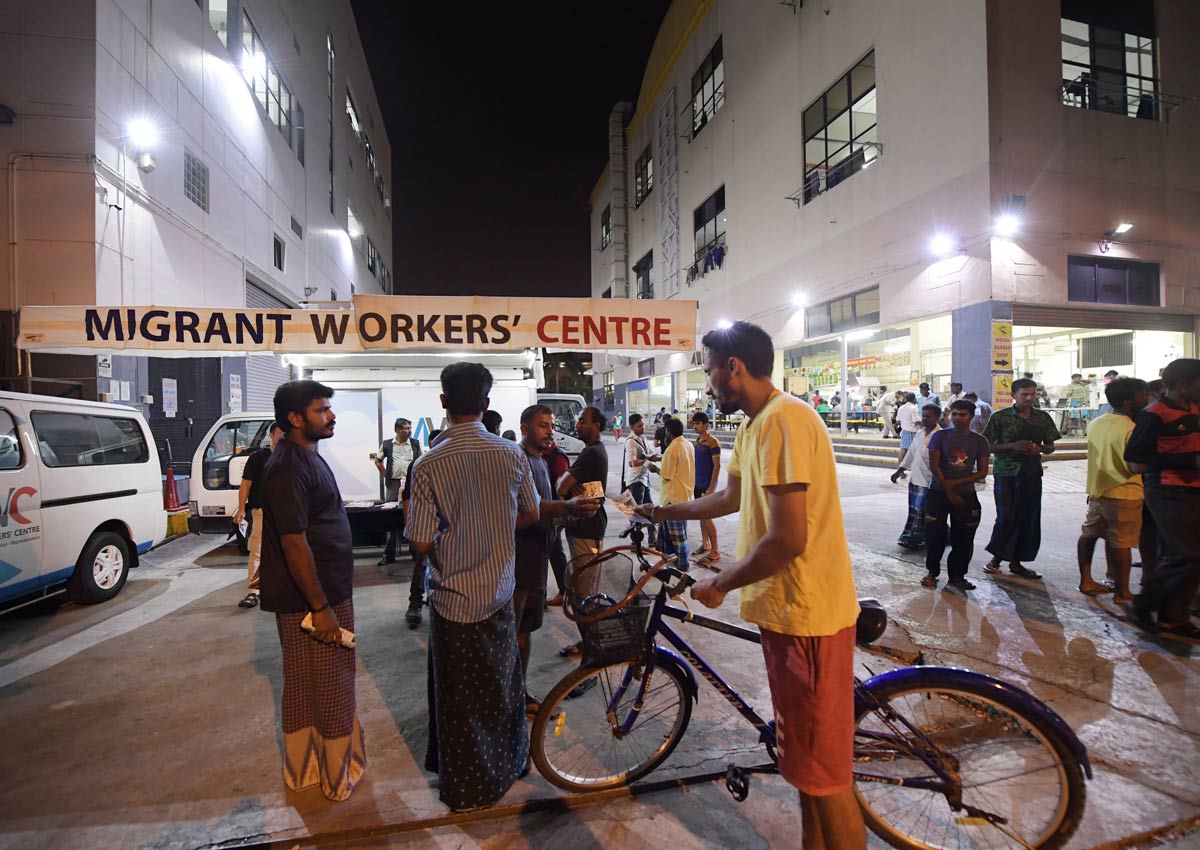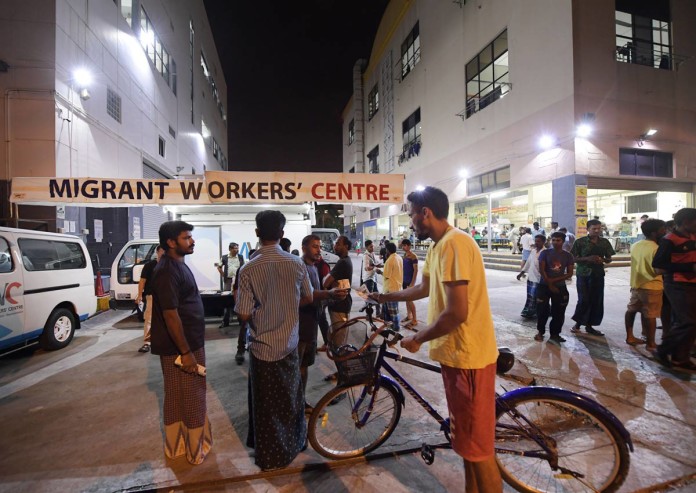The Migrant Workers’ Centre (MWC) is a heavyweight among the non-governmental organisations (NGOs) helping migrant workers.
Set up in 2009 by the National Trades Union Congress (NTUC) and the Singapore National Employers Federation (Snef), it may seem an anomaly as it is the only group with the full support of the Government, labour movement and employers.
When it was set up, NTUC appointed Mr Yeo Guat Kwang, one of its veteran labour MPs then, to oversee the centre as its chairman. The Manpower Ministry also deployed two of its up-and-coming officers to set up the centre. One of them, Mr Bernard Menon, later joined NTUC full-time and continues to run the centre’s day-to-day operations.
When then Manpower Minister Tan Chuan-Jin published a personal collection of travel photos in 2014, he donated $320,000 from the book’s sales to the MWC a year later, making him the largest donor to the centre that year.
Last year, NTUC secretary-general Chan Chun Sing described the centre as “a tripartite effort”.
Mr Yeo, an assistant secretary- general at NTUC, tells Insight the MWC sees itself as an NGO as it champions fair employment practices and the well-being of migrant workers. “Both NTUC and Snef are NGOs, we are set up by two NGOs.”
Read Also: Kudos to NGOs that help Singapore’s migrant workers
The MWC has 17 staff members, the highest among the four larger NGOs assisting migrant workers. HealthServe, Home and TWC2 have nine, six and five full-time staff members respectively.
But unlike the other three, the MWC is not a registered charity.
Instead, it registered one of the funds that it runs – the Migrant Workers’ Assistance Fund – as a charity in May 2012. The fund stands at $457,706 as at March this year. It gave out $64,782 in assistance to workers last year.
Mr Yeo says the MWC keeps the costs of running the centre separate from the assistance it gives workers.
“This ensures the charity dollars go to helping workers, not the operations of the centre.”
It runs two centres in Serangoon Road and Geylang, where workers from South India and China congregate. It also funds a soup kitchen run by HealthServe in Geylang.
Read Also: Working to improve living conditions of migrant workers
But while its NGO status raises eyebrows in some quarters, Mr Yeo dismisses the suggestion that the MWC has an image problem because it is closely linked to the Government, unions and employers.
“At the end of the day, workers trust us and still come to us for help. They see us as effective and that is what matters,” he says.
Asked about criticism that MWC had been inactive until a strike by Chinese SMRT bus drivers in November 2012 and the Little India riot in December 2013, he says: “It is not fair. We have been working quietly in the background to help and advocate for workers.”
He says the MWC has directly assisted more than 20,000 foreign workers with problems and conducted outreach to more than 650,000 foreign workers since 2009.
Recently, the MWC invited Insight to its outreach to foreign workers in Tuas View Square. For nearly three hours in the evening, a team of four MWC staff members and four volunteers distributed fliers on its services to foreign workers returning to their dormitories after work.
Read Also: Medical and dental care offered to migrant workers for a small sum
A Bangladeshi worker approached a volunteer and complained that his employer had deducted too much from his salary for food and lodgings. Mr Menon, who headed the outreach team, interviewed the worker on the spot.
“Employers can make deductions for food and lodgings, but there is a cap,” Mr Menon tells Insight. “I will call the company the next day.”
One of the volunteers was catering company boss Ishtiaque Ahamed. The Singapore permanent resident, who has been here for more than 10 years, says he joined the MWC as a volunteer last year to help his countrymen. “I speak Bengali and it is my duty to help them,” he adds. The Bangladeshi national had approached the MWC to volunteer after a friend told him about it.
The MWC is not the only organisation set up by the NTUC to help migrant workers. In January, the NTUC also set up the Centre for Domestic Employees (CDE). It runs a 24-hour hotline and provides counselling and mediation services between employers and maids.
Mr Yeo also heads the CDE.
It rents about 50 beds from a private dormitory operator to run a shelter for maids, and is setting up a 100-bed shelter that can be expanded by at least another 50 beds. This will be the largest shelter for maids here when it opens next year.

This article was first published on December 18, 2016.
Get a copy of The Straits Times or go to straitstimes.com for more stories.







